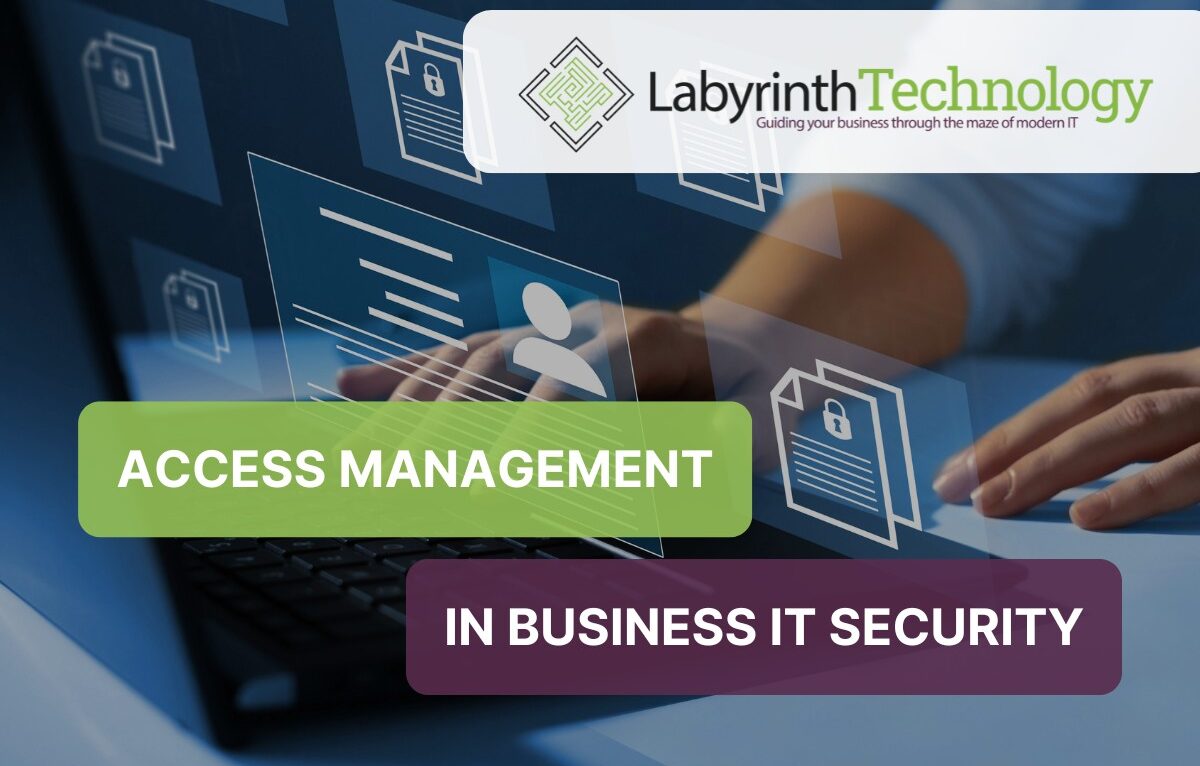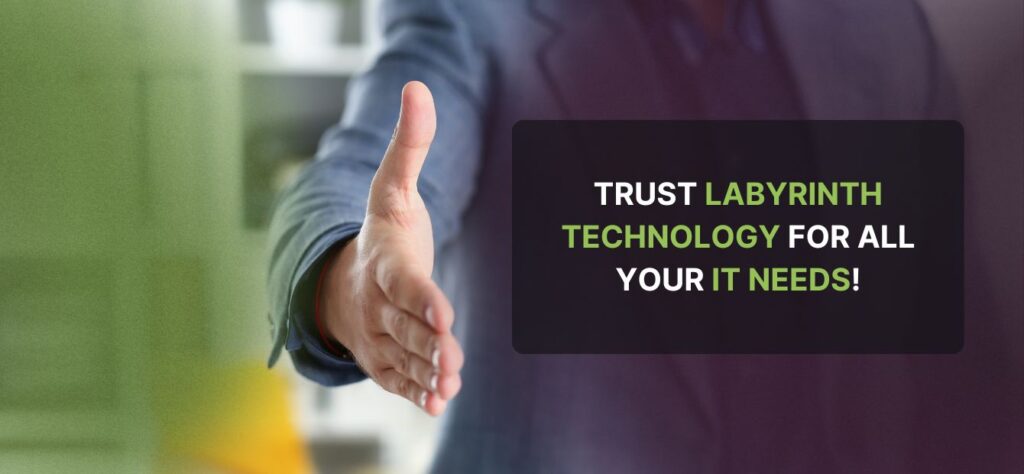
Access management is key to IT security for all businesses. It’s about who has access to your company’s information and resources, so only the right people can see or use specific data and systems. Access management keeps sensitive data out of reach of unauthorised people and prevents breaches that can lead to data loss or financial damage. By having good access management in place you can manage digital identities, secure access to network resources and protect sensitive information.
With the rise of cyber threats businesses need to have robust security in place to protect their data and systems. According to IBM, the average cost of a data breach in 2024 is USD 4.88 million, up 10% from last year. This shows the financial impact of a breach to a business and why you need to have strong cyber security practices in place.
Access management is the processes and technologies used to control and monitor access to information and systems within an organisation. This includes the use of tools like Identity and Access Management (IAM) systems which ensure users are who they say they are and have the right access. IAM technologies like OpenID Connect and cross-domain identity management provide the foundation for managing access rights and controlling access to network resources.
Access management systems are a centralised platform for managing user identities and permissions across multiple applications and systems. They typically have features like user provisioning, authentication, authorisation and audit capabilities. By having IAM in place businesses can streamline user access management, reduce the risk of unauthorised access and improve overall security. Single sign-on (SSO), user authentication and the principle of least privilege means users only have access to what they need to do their job.
Access management is for all businesses because it protects sensitive data, ensures compliance and reduces the risk of security breaches. Without access management businesses are vulnerable to cyber attacks and data breaches which can be disastrous for their reputation and bottom line. IAM and privileged access management is key to protecting data and security controls.
Access management is part of IT security because it protects sensitive data and systems from unauthorised access. In today’s digital age, threats are evolving and businesses need to stay one step ahead to protect their information and resources. Privileged access management means only authorised users have access to sensitive info and network devices.
One of the main reasons access management is so important is to prevent data breaches. According to the Verizon 2024 Data Breach Investigations Report 68% of data breaches involve a human element. By having strong access management in place businesses can reduce the risk of unauthorised access and protect their data from being compromised. Having strict access controls and audit access logs can stop unauthorised access and manage security risks.
In addition to preventing data breaches access management helps businesses comply with regulatory requirements. Most industries are subject to strict data protection regulations like the General Data Protection Regulation (GDPR). These regulations require businesses to have robust access controls in place to protect sensitive data and be compliant. Not being compliant can result in big fines and damage to the company’s reputation. Identity governance and regular security audits help maintain compliance and secure access to organisational data.

Having access management in place is key to keeping your business’s data and systems secure. Here’s how:
Implement Strong Authentication: Use multi-factor authentication (MFA) so users are who they say they are. MFA requires users to provide multiple forms of identification before accessing sensitive data or systems, making it harder for unauthorised users to get in. IAM tools and technologies can help with authentication and user accounts. Additionally, Single Sign-On (SSO) can simplify the login process while maintaining security by allowing users to access multiple applications with a single set of credentials.
Use Role-Based Access Control: Assign access based on the user’s role in the organisation. This means users only have access to the info and resources they need to do their job, reducing the risk of unauthorised access. Fine-grained access control allows businesses to manage access to multiple systems and secure data in cloud environments.
Regularly Review Access Rights: Conduct regular audits of user access rights to ensure only authorised users have access to sensitive data and systems. This can help identify and remove any unnecessary or outdated access permissions, reduce the risk of a security breach. Centralised management and access policies means you have control over access privileges.
Have a Strong Password Policy: Make users create strong, unique passwords and change them regularly. This can stop unauthorised access to your systems and data. Identity management systems and access logs help monitor and manage user authentication.
Provide Security Training to Employees: Educate employees on access management and security best practices. Regular training sessions can raise awareness of security threats and make sure employees know how to protect sensitive data. Preventing unauthorised access and protecting privileged account passwords are key to access management.
Access management is not just for protecting sensitive data but also plays a big part in business continuity. By having strong access controls in place businesses can reduce the impact of a security breach and ensure critical systems and data are available in the event of an incident. Controlling user access and managing digital identities is key to secure access to critical data.
Access management helps businesses have control over their data and systems so they can quickly identify and respond to security incidents. By knowing who has access to what information and resources businesses can manage their security better and reduce the risk of data loss or downtime. Privileged users and identity management systems ensure access to sensitive data is granted correctly.
In addition to protecting sensitive data, access management can also help businesses be more efficient. By simplifying user access management businesses can reduce the time and effort of managing user permissions and free up resources to focus on other important tasks. Identity provider and identity management database solutions secure data and access control across cloud applications and on-premises systems.
One crucial aspect of access management we haven’t yet discussed is the importance of remote access and the Zero Trust Network Access (ZTNA) model. As businesses increasingly adopt cloud-based applications and remote work solutions, managing access to data and systems has become more complex and critical. An effective access management system should control user access across various platforms while ensuring that only authorised users can access sensitive information.
Zero Trust operates on the principle that no user, whether inside or outside the network, should be trusted by default. This model ensures that only authorised users gain access to sensitive information and cloud-based applications. By integrating an access management system with identity management systems, businesses can control user access and verify a user’s identity at every access point. ZTNA provides centralized management of permissions, granting access only to those who meet specific identity attributes and have the appropriate permissions.
Remote access management is another essential aspect of maintaining robust data security. With more employees accessing data remotely, businesses need to ensure secure connections that protect data from unauthorised access. IAM systems with single sign-on capabilities facilitate seamless access while maintaining security. Directory services and identity management databases help manage digital identities and prevent unauthorised users from accessing data. Incorporating physical security measures and monitoring privileged accounts can further enhance security, ensuring only authorised users access sensitive information. By leveraging these strategies, businesses can maintain a strong security posture, reduce the risk of data breaches, and protect their digital assets.

At Labyrinth Technology, we understand that effective access management is crucial for businesses of all sizes. Our expert team is dedicated to helping you implement robust access policies and practices to protect your data and systems. We offer a variety of IT consulting services to assist you in finding the most appropriate solutions for your business, ensuring that only authorized users can gain access. Our expertise as a service provider ensures that your organisation’s data remains secure and accessible only to authorized users.
Our comprehensive approach to access management covers everything from assessing your current security posture to implementing advanced Identity and Access Management (IAM) solutions. We work closely with you to understand your unique business needs and develop a tailored strategy to enhance your security and ensure compliance with regulatory requirements. Our identity management systems and privileged access management solutions provide the foundation for secure access and effective data protection. These systems ensure that only authorised users have appropriate access, thereby preventing unauthorised access and safeguarding sensitive information.
Labyrinth Technology offers a wide range of IT services and solutions to help you maintain security and efficiency. From cybersecurity and data protection to cloud computing and managed IT services, our team is committed to delivering the highest level of service and support to help your business thrive. Our solutions enable secure access, unified visibility, and protection against insider and external threats.
Contact us today to learn more about how our IT solutions can benefit your business and help you achieve your security goals. With us, you gain a partner dedicated to protecting your data and supporting your growth with services and solutions tailored to your needs.
Get in touch to find out more.
Empowering London Businesses with Efficient IT Solutions to Save Time and Stay Ahead of the Competition.